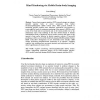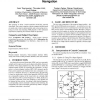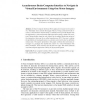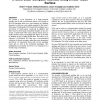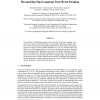133
click to vote
HCI
2009
14 years 12 months ago
2009
Current brain-computer interface (BCI) research attempts to estimate intended operator body or cursor movements from his/her electroencephalographic (EEG) activity alone. More gene...
189
click to vote
HCI
2009
14 years 12 months ago
2009
Abstract. We propose a brain-computer interface (BCI) system for evolving images in realtime based on subject feedback derived from electroencephalography (EEG). The goal of this s...
117
click to vote
CHI
2009
ACM
15 years 3 months ago
2009
ACM
In this paper, we propose a model to predict the performance of selection techniques using Brain-Computer Interfaces based on P300 signals. This model is based on Markov theory an...
118
click to vote
ASSETS
2008
ACM
15 years 4 months ago
2008
ACM
This proposal is about a brain-controlled electrically powered wheelchair. The system comprises a brain-computer interface based on steady-state visual evoked potentials and a pro...
134
click to vote
NIME
2005
Springer
15 years 7 months ago
2005
Springer
Musicians and composers have been using brainwaves as generative sources in music for at least 40 years and the possibility of a brain-computer interface for direct communication ...
113
click to vote
IWANN
2009
Springer
15 years 8 months ago
2009
Springer
A Brain-Computer Interface (BCI) application focused on the control of a wheelchair must consider the danger which a wrong command would involve in a real situation. Virtual realit...
126
click to vote
CHI
2010
ACM
15 years 9 months ago
2010
ACM
We present a novel integration of a brain-computer interface (BCI) with a multi-touch surface. BCIs based on the P300 paradigm often use a visual stimulus of a flashing character ...
104
click to vote
ICPR
2010
IEEE
15 years 9 months ago
2010
IEEE
The problem of classifying complex motor activities from brain imaging is relatively new territory within the fields of neuroscience and brain-computer interfaces. We report posi...
